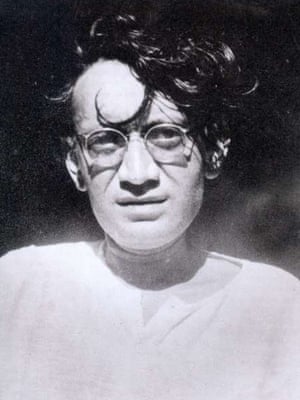- UID
- 20
- Online time
- Hours
- Posts
- Reg time
- 24-8-2017
- Last login
- 1-1-1970
|
Editado por Pedro_P en 5-9-2018 07:05 PM
Saadat Hasan Manto chronicled Bombay life in all its ugly beauty – until sectarian horrors were unleashed on the streets he loved. A new biopic by director Nandita Das retells his stories.

Moral outrage … Nawazuddin Siddiqui stars in Manto. Photograph: JCP
▼ It took just a moment to cleave India in two. At midnight between 14 and 15 August 1947, the country of Pakistan was born and India was liberatedfrom British rule. In the months leading to the end of the British Raj, one of the world’s largest migrations occurred. Fourteen million people were displaced, leading to acts of mass violence, turning Hindu, Muslim and Sikh against one another.
On the morning of the 15th, Saadat Hasan Manto looked on with horror as communal violence erupted on the streets of his adopted home city, then known as Bombay. A journalist and short story author, he had just been fired from his job as a screenwriter at the Bombay Talkies film studio for being a Muslim. Fearing for his family’s safety, he had little choice but to flee the city, finding refuge in Lahore, Pakistan. By 1955 he was dead, aged 42, due to alcoholism. He had never returned to the city he loved.
Born in Punjab in 1912, Manto was one of most controversial writersof the age, eloquently crafting empathetic and shocking short stories about those living on the edges of society. Many of his best tales were inspired by his time in what is now Mumbai between 1936 and 1948. He would recall these years as the happiest of his short life, with stories that portrayed a very different side to India, embracing both beauty and ugliness.
While best known for his tales of partition such as Toba Tek Singh, he also masterfully captured the underbelly of the city, telling stories of pimps, gangsters, salon madams and prostitutes living in cramped chawls. His stories were frank, forthright and imbued with a sense of moral outrage that aimed to give a voice to the voiceless. Notoriety inevitably followed him, and Manto faced trial six times on charges of obscenity for his short stories.
The author’s life and work are now the subject of Firaaqdirector Nandita Das’s second feature film, Manto. Starring Sacred Gamesstar Nawazuddin Siddiqui as Manto, the biopic charts the writer’s last years in Bombay before moving to Pakistan.
“He’s so relevant to today, and it is my way of responding to what is happening now,” explains Das, speaking from Mumbai. “His empathy was very deep for those that exist on the margins of society – especially for women and sex workers – and no one in Indiawas writing about that at the time.”
Throughout the film, Das weaves in tableaux of five of the author’s better-known works, blurring the line between fact and fiction – as was the case with Manto’s own work. His stories spring to life as he strolls crowded streets, talking with intellectuals in Irani cafes, drinking Deer brand whiskey with actors and singers, and making ends meet by working as a screenwriter – often haggling for more money from penny-pinching producers.
Salman Rushdie, the author of Midnight’s Children and one of Manto’s biggest advocates, describes him as “unparalleled in his generation”. “There are few writers,” says Rushdie, “who straddle both India and Pakistan as he does, and who engage with the deepest problems of both countries.” According to Rushdie, Bombay was always Manto’s “greatest inspiration”. It is an affection that shines throughout Das’s film.

‘Unparalleled in his generation’ … Saadat Hasan Manto. Photograph: Wikipedia
Manto was the voice of the city in the 1940s. As a writer he peeled back the tourist-guide sentimentality of the city, portraying a warts-and-all place where you could “live on the footpath or in a magnificent palace” and be happy “on two pennies a day or on 10,000 rupees”. (▪ ▪ ▪)
► Please, read the full note here: Source
.
.
.
► A few books by Sadat Hasan Manto, are found here:
• Sadat Hasan Manto - 2 books
• [Hindi] Dastavej -- Saadat Hasan Manto |
|